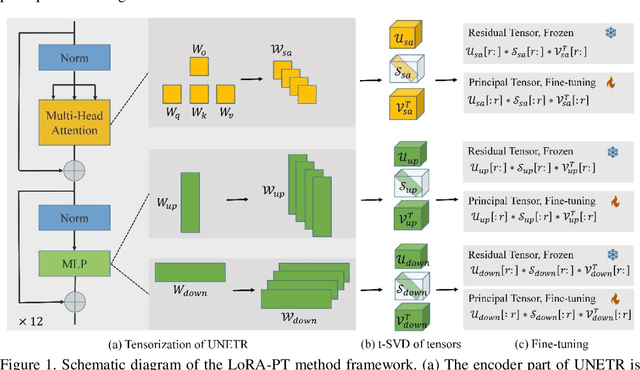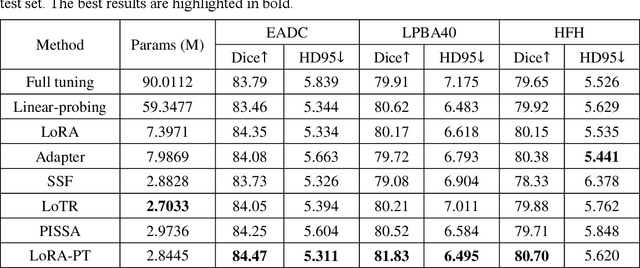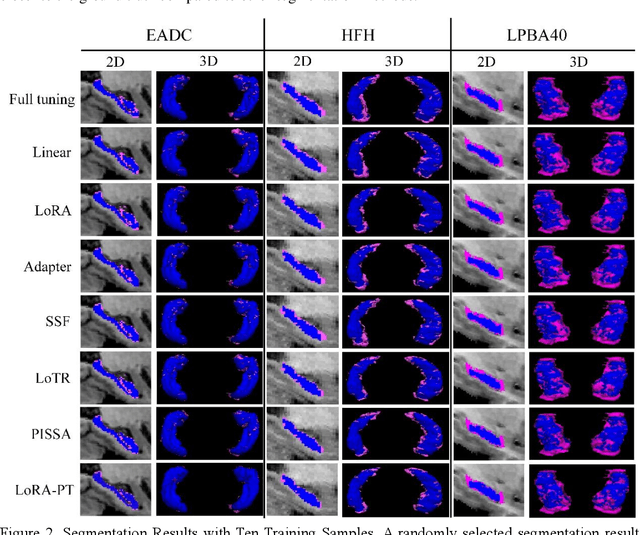LoRA-PT: Low-Rank Adapting UNETR for Hippocampus Segmentation Using Principal Tensor Singular Values and Vectors
Paper and Code
Jul 16, 2024



The hippocampus is a crucial brain structure associated with various psychiatric disorders, and its automatic and precise segmentation is essential for studying these diseases. In recent years, deep learning-based methods have made significant progress in hippocampus segmentation. However, training deep neural network models requires substantial computational resources and time, as well as a large amount of labeled training data, which is often difficult to obtain in medical image segmentation. To address this issue, we propose a new parameter-efficient fine-tuning method called LoRA-PT. This method transfers the pre-trained UNETR model on the BraTS2021 dataset to the hippocampus segmentation task. Specifically, the LoRA-PT method categorizes the parameter matrix of the transformer structure into three sizes, forming three 3D tensors. Through tensor singular value decomposition, these tensors are decomposed to generate low-rank tensors with the principal singular values and singular vectors, while the remaining singular values and vectors form the residual tensor. Similar to the LoRA method, during parameter fine-tuning, we only update the low-rank tensors, i.e. the principal tensor singular values and vectors, while keeping the residual tensor unchanged. We validated the proposed method on three public hippocampus datasets. Experimental results show that LoRA-PT outperforms existing parameter-efficient transfer learning methods in segmentation accuracy while significantly reducing the number of parameter updates.
 Add to Chrome
Add to Chrome Add to Firefox
Add to Firefox Add to Edge
Add to Edge